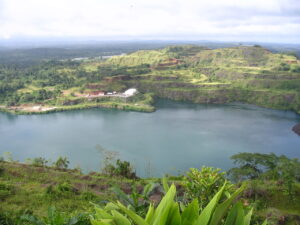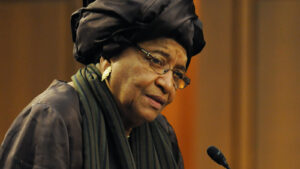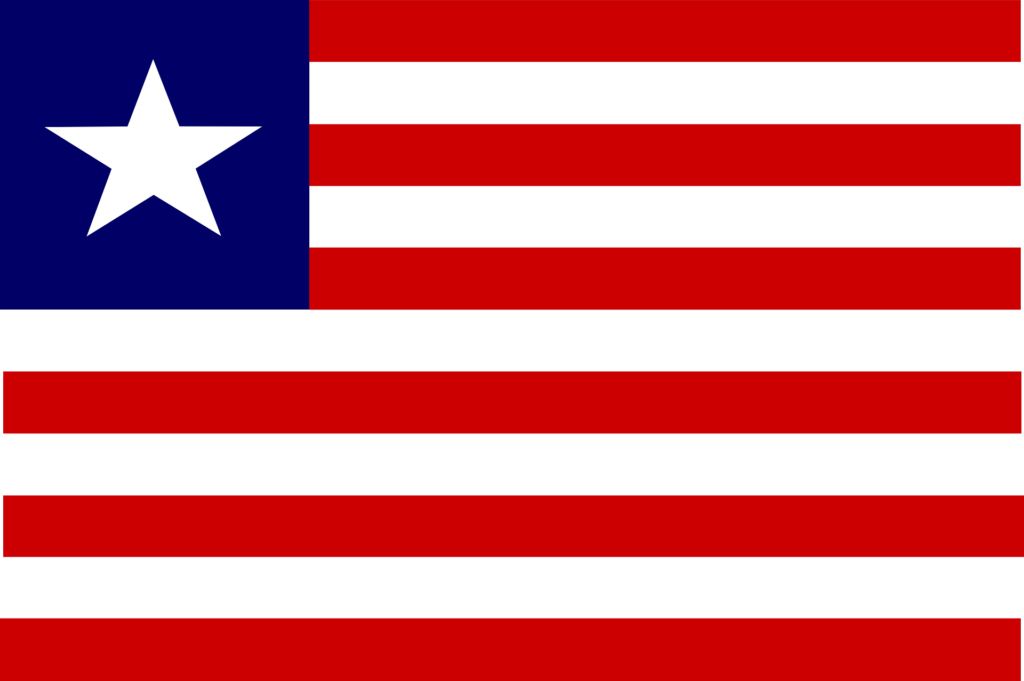Did you know that freed slaves from the U.S. once founded a country in Africa? That country is Liberia, on the coast of West Africa. The establishment of five repatriate settlements began in 1822, and the settlers established the first Republic in Africa in 1847.
What’s In A Name?
Quite a lot, actually. Liberia itself means “Land of the Free” – sound familiar? In fact, Liberians brought a great deal of inspiration from America, including the flag (pictured) featuring red, white, and blue, a star, and stripes! They even named the capital Monrovia, after U.S. President James Monroe, who supported the freed slaves’ colonization efforts. Monrovia is actually one of only two national capitals in the world to be named after a U.S. President – the other bring Washington D.C., of course!

Geography and People
Bordered by Guinea, Cote d’Ivoire, Sierra Leone, and the Atlantic Ocean, this tropical country is lined by a coast of lagoons and mangrove swamps scattered with idyllic beaches. Rolling, grassy hills extend inland, and beyond this the land rises in a dissected plateau, where you can find rainforest and most of the country’s limited agriculture taking place. There are a few low mountains, especially in the northeast, where Mt Wuteve is the nation’s highest spot.
Rich in indigenous history, the area has been part of both the Mali and Songhai Empires, and even managed to avoid colonial rule by any European power. And, although English is the official language of Liberia, there remain 28 ethnic groups and languages today. In fact, Liberia is one of the most ethnically diverse countries in the world.
History

Like all countries, Liberia has experienced considerable strife. Unsurprisingly, tensions between settlers and indigenous populations have persisted from the beginning. As a matter of fact, in 1980, an indigenous man led a military coup that toppled the republic and ushered in a decade of authoritarian rule. In 1989, however, rebellion led to civil war. Intermittent violence continued until 2003, when a peace agreement finally put an end to the war. 2005 saw the beginnings of stability as democratically elected Ellen Johnson Sirleaf, of indigenous ancestry and American education, took her place as the Republic of Liberia’s 23rd president and Africa’s first female head of state. Sirleaf served as President until 2018 and won the Nobel Peace Prize in 2011 for her efforts at bringing women into the peacekeeping process. The transition of power from Sirleaf to her successor, President George Manneh Weah, was the first peaceful transition of power in 73 years.
Today, Liberia continues to struggle. The Ebola epidemic of 2014, in which more deaths occurred than in all other outbreaks combined, was worst in Liberia. Originating in Ghana, it spread through nine other countries, including the U.S., infecting nearly 29,000 and killing more than 11,000. Still recovering from decades of dictatorship and war, the epidemic, and the limited capacity to meet an onslaught of infections, did much to devastate the country. Only declared over in 2016, COVID-19 was hard on its heels. Giving the country no time to recover, the pandemic has caused further hardships for struggling Liberians.
Want to Know More about Liberia and the 2014 Ebola Epidemic?
Check out This WHO Report!
The Government of Liberia sees pervasive poverty, inequality, and widespread deprivation as the greatest restraint to sustaining the peace and accelerating growth and sustainable development.
The country remains one of the poorest in the world, with three of ten people in the capital city living in poverty, and an astonishing eight of ten in rural settings. While 54% of Liberians live in poverty overall, more than 70% experience multidimensional poverty. Sadly, poverty, which had been on the decline since 2005, has been steadily increasing since 2014 and may well continue to do so without significant interventions in the areas of healthcare and education.
Further Resources:
https://www.cia.gov/the-world-factbook/countries/liberia/
https://www.nationsonline.org/oneworld/liberia.htm
https://en.wikipedia.org/wiki/Ellen_Johnson_Sirleaf
https://www.who.int/emergencies/situations/ebola-outbreak-2014-2016-West-Africa
